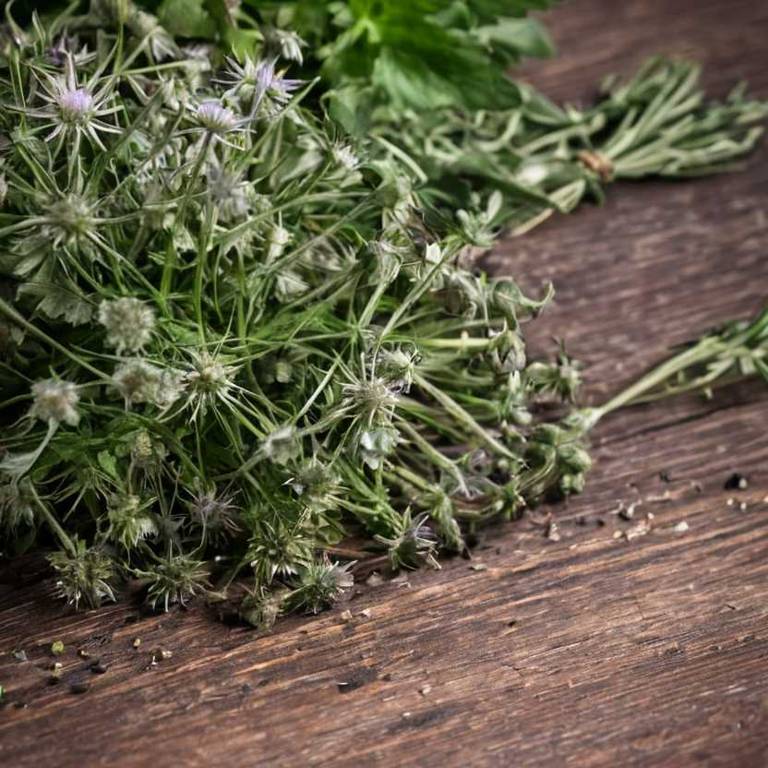Burdock
Arctium lappa
Ashwagandha is a prominent medicinal herb in Ayurvedic medicine, classified as a rasayana (rejuvenator). It is primarily utilized as an adaptogen to help the body manage physical and chemical stress.
Family
Solanaceae (Nightshade)
Native Region
India, Middle East, Africa
Part Used
Root, Leaf, Berry

Botanical Identification
Burdock is scientifically known as Arctium lappa and belongs to the Asteraceae family. Common names include common burdock and gobo, with regional variations. It is a biennial plant native to Europe, Asia, and North Africa. The plant has a thick, taproot, large heart-shaped leaves, and purple flowers. Synonyms in herbal literature include devil's lettuce and cocklebur.
Active Compounds
Burdock contains key active compounds such as coumarin, flavonoids, and phenolic acids. These compounds work together to provide anti-inflammatory and antioxidant effects. Their synergistic action enhances the herb's therapeutic potential in herbal medicine.
- Coumarin
- Flavonoid
- Phenolic acid
Therapeutic Indications
| System | Condidtion | Action |
|---|---|---|
| Respiratory | Bronchitis, allergic rhinitis, cough | Expectorant, antihistaminic, immunostimulant |
| Integumentary | Skin infections, wound healing, skin irritation | Antimicrobial, antioxidant, anti-inflammatory |
| Digestive | Gastrointestinal inflammation, gastrointestinal spasms, gastritis, digestive disorders | Anti-inflammatory, spasmolytic, antispasmodic |
Preparation Methods
Decoction: Used for respiratory infections and skin conditions due to its anti-inflammatory properties.
Poultice: Applied externally for wounds, inflammation, and skin irritations.
Infusion: Used for digestive issues and as a general tonic.
Safety Profile
Burdock is generally considered safe when used in recommended doses. However, it may cause gastrointestinal discomfort in some individuals. It is contraindicated in people with known allergies to plants in the Asteraceae family.